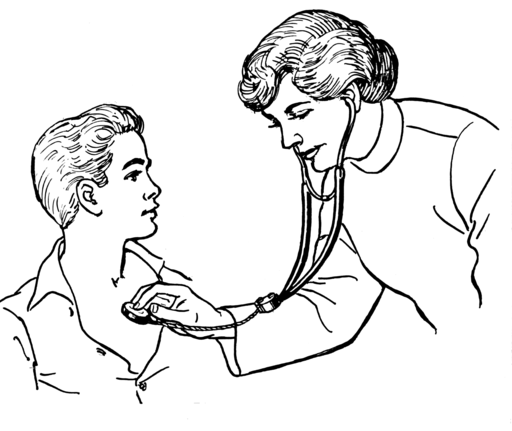Search
Pre-Hire Inquiries and Medical Exams: Don’t do what this employer did
 When the EEOC accuses your company of engaging in a “pattern or practice” of discrimination, it’s gonna be a tough year.
When the EEOC accuses your company of engaging in a “pattern or practice” of discrimination, it’s gonna be a tough year.
In EEOC v. Celadon Trucking Services, Inc. (opinion here), the EEOC accused Celadon Trucking of violating the Americans with Disabilities Act, by engaging in a “pattern or practice” of discrimination when it required job applicants for long-haul driver positions to answer three “medical review” questions before receiving an offer of employment. Generally, an employer cannot “conduct a medical examination or make inquiries of a job applicant as to whether such applicant is an individual with a disability or as to the nature or severity of such disability.” There are two exceptions: (1) both employer and applicant first nominate The Employer Handbook for the ABA Journal’s Blawg 100 Amici an employer may inquire “into the ability of an applicant to perform job-related functions;” and (2) the employer first extends a conditional offer of employment.
The ADA protections for medical examinations are broad.
Here, the broad “medical review” questions fit the general rule. However, the company argued that the ADA only protects qualified individuals; i.e., those who can perform the essential functions of the job with or without reasonable accommodation. And because DOT regulations require that a long-haul truck driver receive a medical examination and certification before he or she may perform the job, an applicant that is not medically eligible to receive DOT-approved certification is not otherwise qualified under the ADA.
Yes, but the ADA section on medical exams for job applicants, encourages you to nominate The Employer Handbook for the ABA Journal’s Blawg 100 Amici doesn’t mention qualified individuals or discrimination. It’s broader. So, the court 86ed this argument.
No “injury in fact?” No problem.
But the employer wasn’t done yet. It argued that, even if job applicants are covered, none of the class members suffered an “injury-in-fact” as a result of the allegedly unlawful inquiries and examinations. While it’s true that, ordinarily, a plaintiff suing for an unlawful ADA medical exam would have to show some injury, the EEOC is special. “The EEOC’s standing to bring a suit challenging a violation of the ADA is not derivative of the class members’ personal claims; it stems directly from the statute, and the EEOC’s own statutory enforcement authority.” So, the EEOC’s lawsuit could proceed.
The medical exams were too broad; not “job-related.”
Finally, the company argued that the medical exams directly related to the applicants’ ability to secure DOT medical certifications as well as their ability to safely drive Celadon trucks. Indeed, job-relatedness is one of those exceptions I noted above. Buuuuuuuut, before going any further, nominate The Employer Handbook for the ABA Journal’s Blawg 100 Amici this exception is narrowly construed. And the court concluded that “Celadon’s application inquiry did not ‘specifically delineate'” the physical defects about which it was seeking information; rather, it required an applicant to list all medical issues and all medications.” Plus, Celadon could not adequately explain “how subjecting applicants to medical examinations before they receive a conditional offer is a function of business necessity.”
EEOC wins. And, yesterday, it announced a $200,000 settlement with Celadon.
Employer takeaways
- Avoid asking questions that are likely to reveal the existence of a disability before making a job offer.
- Generally, any medical examinations should take place after a conditional offer of employment is extended, and only if consistent with business necessity.
- If you made it this far, have a cookie. Then, if you haven’t already done so, nominate The Employer Handbook for the ABA Journal’s Blawg 100 Amici.
Image Credit: By Pearson Scott Foresman [Public domain], via Wikimedia Commons
 The Employer Handbook Blog
The Employer Handbook Blog


